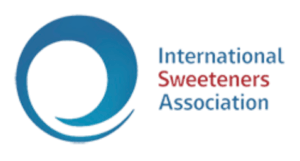Abstract
Steviol glycosides in the present evaluation are mixtures of steviol glycosides that comprise not less than 95% of stevioside and/or rebaudioside A. Stevioside as a sweetener was evaluated by the SCF in 1984, 1989 and 1999. JECFA reviewed the safety of steviol glycosides in 2000, 2005, 2006, 2007, and 2009 and established an ADI for steviol glycosides (expressed as steviol equivalents) of 4 mg/kg bw/day. The Panel considers that the results of toxicology studies on either stevioside or rebaudioside A are applicable for the safety assessment of steviol glycosides as both rebaudioside A and stevioside are metabolised and excreted by similar pathways, with steviol being the common metabolite for both. Considering the available toxicity data (in vitro and in vivo animal studies and some human tolerance studies), the Panel concludes that steviol glycosides, complying with JECFA specifications, are not carcinogenic, genotoxic or associated with any reproductive/developmental toxicity. The Panel establishes an ADI for steviol glycosides, expressed as steviol equivalents, of 4 mg/kg bw/day based on application of a 100-fold uncertainty factor to the NOAEL in the 2-year carcinogenicity study in the rat of 2.5% stevioside in the diet. This is equal to 967 mg stevioside/kg bw/day (corresponding to approximately 388 mg steviol equivalents/kg bw/day). Conservative estimates of steviol glycosides exposures both in adults and in children suggest that it is likely that the ADI would be exceeded at the maximum proposed use levels.
Summary
EFSA ANS Panel concludes that toxicological testing showed that steviol glycosides are not genotoxic, nor carcinogenic, or linked to any adverse effects on the reproductive human system or for the developing child. The Panel set an Acceptable Daily Intake (ADI) of 4 mg per kg body weight per day for steviol glycosides, a level consistent with that already established by the Joint FAO/WHO Expert Committee on Food Additives (JECFA). On the basis of EFSA scientific opinion, the European Commission authorised steviol glycosides for their proposed use in food and drinks in the European Union.
Steviol glycosides are intense sweeteners extracted from the leaves of the stevia plant (Stevia rebaudiana Bertoni). These substances, such as stevioside and rebaudioside, range in sweetness from 40 to 300 times sweeter than sucrose.


